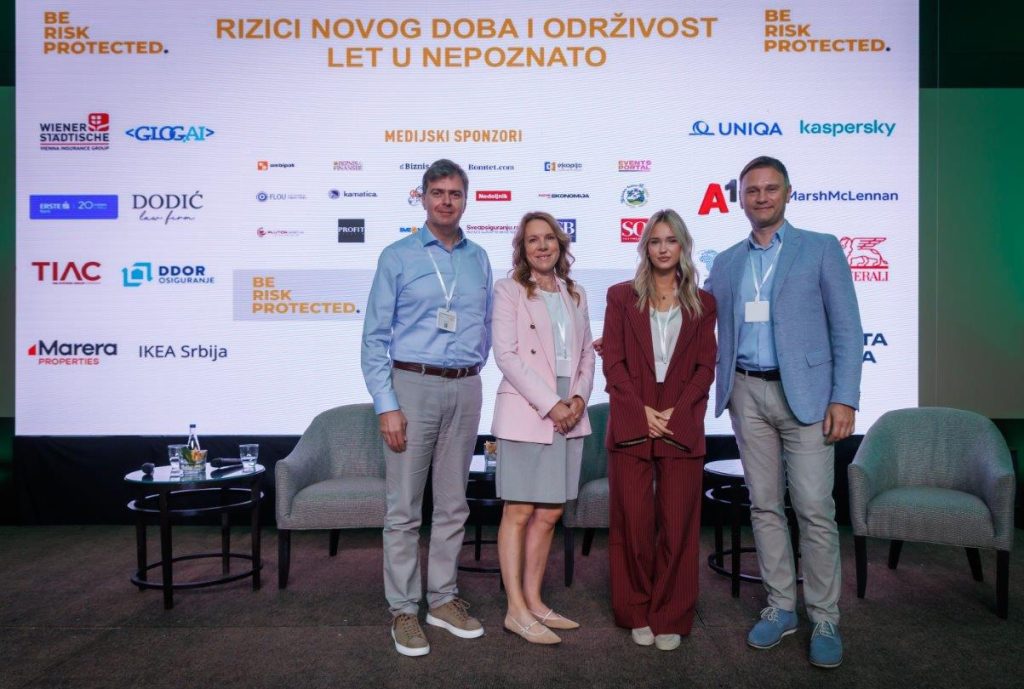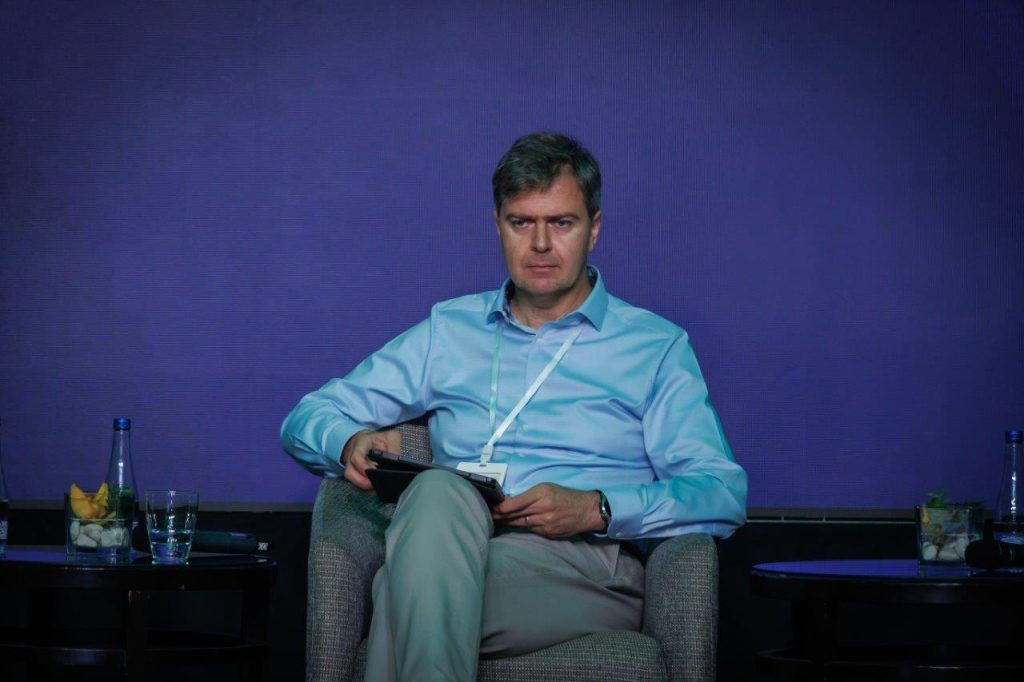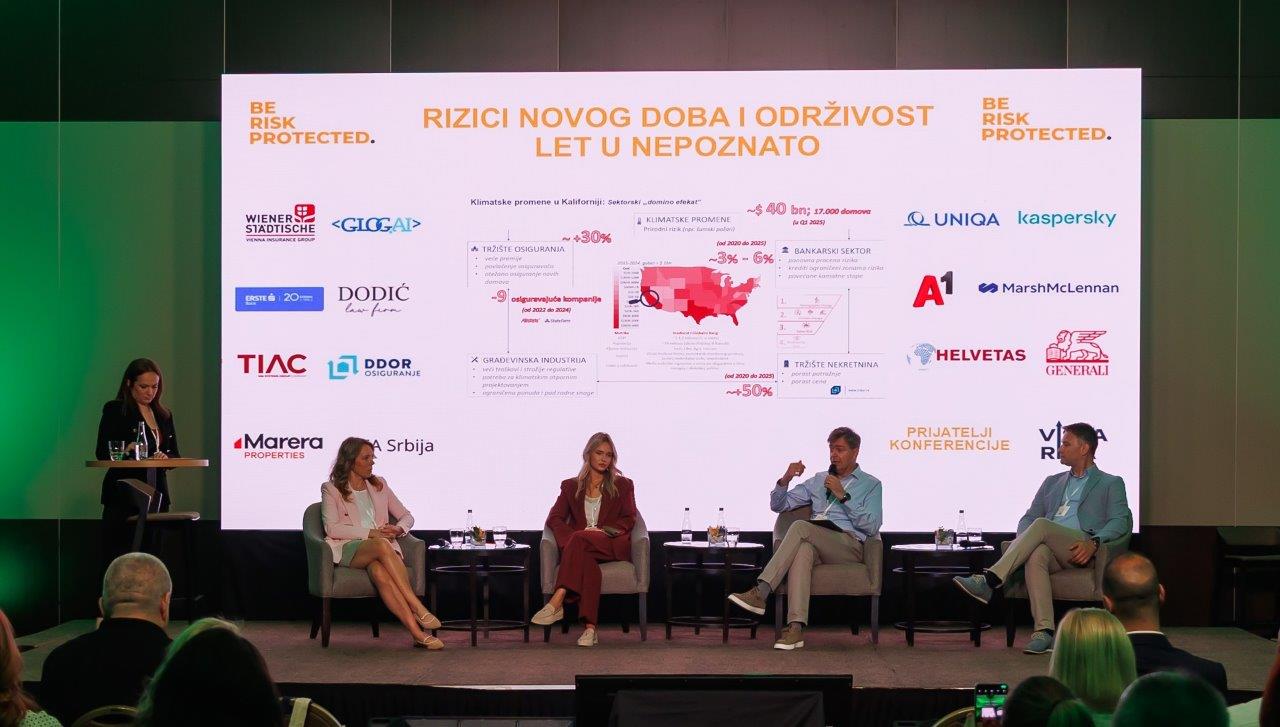Climate change, cyberattacks, regulatory pressures, employee loneliness, and risks associated with the use of artificial intelligence are increasingly common topics shaping the modern business world. In search of answers on how to build resilience in an era of uncertainty, the sixth regional conference “Risks of the New Age and Sustainability: A Flight into the Unknown” was held on June 5 at the Hyatt Hotel in Belgrade, organized by the BeRiskProtected platform.

At the panel “Climate Reset: Innovations for a Sustainable Future,” DDOR Insurance was represented by Leo Pandžić, Director of the Directorate for Sustainable Development. Alongside him, the panel discussion included Tijana Koprivica, Director of Sustainable Business at Delta Holding, Bojan Ljubičić, Portfolio Director at Marera Properties, and Teodora Kovačević, Sustainability Leader at IKEA. The discussion focused on the consequences of climate change for the economy and how companies, through innovation, ESG strategies, and insurance, are responding to future risks.

Pandžić emphasized that the insurance industry is experiencing growth, but that this is largely the result of inflationary pressures. He also noted that global awareness of the importance of insurance remains low—even within the European Union, only 25% of assets are insured.
“The insurance industry is one of the most sensitive to climate change. Extreme weather events are becoming more frequent, more complex, and more costly. Insurance plays an important role in sustainability because it enables financial stability and community resilience. At DDOR, we are developing protection models that reflect reality, because risks are no longer theoretical—they are part of everyday life,” said Pandžić.
“We are witnessing a continuous streak of record-breaking values, and the consequences are devastating. Science clearly shows that the destructive forces of climate change are no longer a potential threat—they are a daily reality. Therefore, societies must prepare for increasingly frequent, unpredictable, and intense weather disasters,” Pandžić emphasized.
According to him, education on climate risks and preventive measures, as well as the development of business continuity plans, must become the norm. He especially highlights the importance of investments in digital tools, GIS systems, and artificial intelligence, which allow for real-time weather monitoring, identification of risk zones, and automatic activation of protection or adaptation mechanisms.
Referring to relevant research such as the “Extremes” project, SwissRE, and MunichRE, Pandžić reminds us that Serbia is located in a region where increasingly frequent and destructive weather extremes are expected. In this context, protecting human health and preserving property are not only business obligations but also a fundamental social responsibility.
In addition to climate challenges, the conference program also covered topics such as ESG regulations, manager liability, legal protection from lawsuits and debt collection, current legal frameworks in the fields of cybersecurity and artificial intelligence, as well as changes brought by new generations regarding benefits and the work environment. Special emphasis was placed on the “silent risk” of modern business—employee loneliness, which directly affects team health and productivity.
